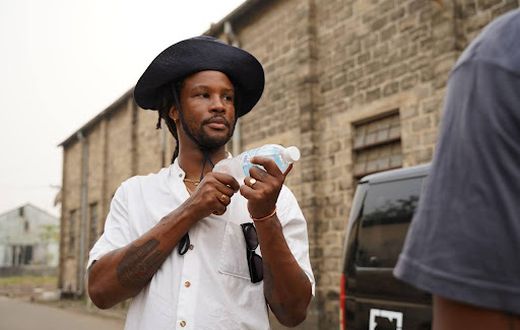Across West Africa, the modern landscape of city life continues to evolve as the aspirations of Nigerians, Ghanaians, and Africans at large collide with the realities of economic pressures, rapid urbanisation, and societal change. Whether strolling through the bustling districts of Lagos, cycling along Accra’s busy streets, or observing the universal rhythms of global urban centres, one truth remains: the challenges and triumphs of city living are shared by millions. This article delves into those everyday experiences, highlighting unique West African perspectives and connecting them to broader worldwide trends.
The Urban Pulse: Navigating City Life in Nigeria and Beyond
For many, cities like Lagos and Abuja offer the promise of opportunity, connection, and cultural dynamism. However, as the population surges—the United Nations estimates that Africa’s urban population will double by 2050—West Africans are contending with new realities. Housing shortages, traffic gridlocks, and the rising cost of living force residents to adjust their routines and priorities.
According to Tolu Oduwole, a Lagos-based urban planner, “We see waves of young people flocking to cities, hoping to find work and better living conditions. But, simultaneously, basic infrastructure and affordable services often lag behind these demographic shifts.” Oduwole’s observations are echoed by many urban dwellers who experience both the vibrant energy and persistent frustrations of life in Africa’s metropolises.
Everyday Commutes: A Shared Struggle
One of the most universal touchpoints for West Africans living in megacities is the daily commute. From packed Danfo buses in Lagos to the perennial ‘trotro’ queues in Accra, moving from one’s home to the workplace or school is often an odyssey. Data from the Nigerian Bureau of Statistics indicates that average commute times in Lagos can exceed two hours per day, a figure that directly impacts quality of life for millions.
Benedict Ankomah, a commuter in Ghana’s capital, shares, “You leave home at 5:30 a.m., just to beat traffic, but even then, you still get stuck at some point. It’s mentally taxing, but it’s part of city life here.”
- High transport costs: With fluctuations in fuel prices and persistent inflation, even basic forms of daily transport can eat deeply into earnings.
- Safety and reliability concerns: Reports of road accidents, mechanical breakdowns, and vehicle shortages remain widespread.
- Adaptation and innovation: Recent years have seen organized ride-hailing, digital payment services, and even e-scooter schemes emerge—especially among young, tech-savvy urbanites.
The Housing Conundrum
Urban population booms inevitably spark questions about shelter and affordability. Analysts highlight that more than 17 million Nigerians are affected by housing deficits, with similar crises mirrored in Ghana, Côte d’Ivoire, and other rapidly urbanising nations (World Bank, 2022). Government-backed affordable housing schemes have emerged, but experts say long-term progress is slow and demand vastly outpaces supply.
Grace Adjei, a young professional in Lagos, comments, “Rents here are astronomical, sometimes demanding two or three years’ payment upfront. It pushes many of us to share flats, endure substandard conditions, or keep shuttling between distant relatives.”
Learning from Global Cities
While the challenges are immense, many West Africans point to global success stories for inspiration. Cities like Nairobi, Johannesburg, and even non-African hubs such as Mumbai and São Paulo have implemented innovative approaches to transportation, housing, and urban planning with varying degrees of success.
Lagos officials, for instance, have piloted bus rapid transport (BRT) corridors and digital identification systems to help manage traffic and expand access to city services. While results are mixed, these efforts demonstrate the willingness of local governments to experiment and learn from international counterparts.
Cultural Vibrancy Amid The Hustle
Despite daily challenges, West African cities are a melting pot of creativity and resilience. The sounds of Afrobeats emanating from street corners, the colourful mosaics of bustling markets, and the spontaneous gathering of neighbours during public holidays, all contribute to a shared sense of identity and hope. Cultural figures—from Nollywood celebrities to up-and-coming artists—use city life as a canvas for storytelling and social commentary.
According to popular Nigerian writer Chimamanda Ngozi Adichie, “Cities breathe with the stories of their people, and nowhere is this more vivid than in Africa’s megacities—pacesetters, innovators, survivors.”
Community Initiatives Driving Change
Increasingly, civil society, religious organizations, and youth groups are launching grassroots initiatives to improve urban quality of life. Examples include neighbourhood waste recycling co-ops, local safety patrols, and microfinance collectives for market traders.
Take the example of the Ajegunle Food Project in Lagos, which supplies affordable hot meals to low-income families. As one beneficiary, Mrs. Taiwo, enthused, “We may struggle, but together we always manage—these small efforts remind you that people still look out for each other.”
Complex Issues Demand Collaborative Solutions
Urban development in West Africa comes with its own set of competing interests and systemic constraints. Some residents express frustration that promise after promise from politicians still leaves basic gaps in water, sanitation, and electricity. Others point to corruption, policy delays, or lack of representation for the poorest segments.
Global agencies like the United Nations Habitat and the African Development Bank stress that robust solutions will require cross-sector collaboration, greater investment in digital infrastructure, and inclusive decision-making.
Looking Forward: The Next Generation
West Africa’s future hinges on its youth. With over 60% of the region’s population under age 25, the drive and optimism of this demographic will determine whether cities thrive or falter. Grassroots entrepreneurship, creative industries, and a growing appetite for civic engagement all suggest that a new urban narrative is emerging—one grounded in local realities but open to global exchange.
According to Dr. Yemi Alade, a Nigerian sociologist, “If we empower young West Africans with the tools and opportunities they need, our cities could someday rival the most dynamic centers in the world—not just for economic productivity, but for human flourishing.”
For those navigating the joys and hurdles of urban life, their stories shine a light on larger trends that define Nigeria, West Africa, and the continent as a whole.
[[EMBED_0]]
Your Voice Matters
What challenges and bright moments define life in your city? How do you see the future unfolding for Nigeria, Ghana, and Africa’s bustling metropolises?
Share your experiences, ideas, or city stories in the comments below—and don’t forget to follow us for the latest updates and fresh perspectives on West African urban life.
Do you have a compelling city story, urban challenge, or neighbourhood triumph you’d like to share or sell? We’d love to hear from you! Email us at story@nowahalazone.com to get your voice heard or to discuss story sales and feature opportunities.
For general inquiries or support, reach out at support@nowahalazone.com.
Connect with us on Facebook, X (Twitter), and Instagram for more real-life city stories and the latest news!










